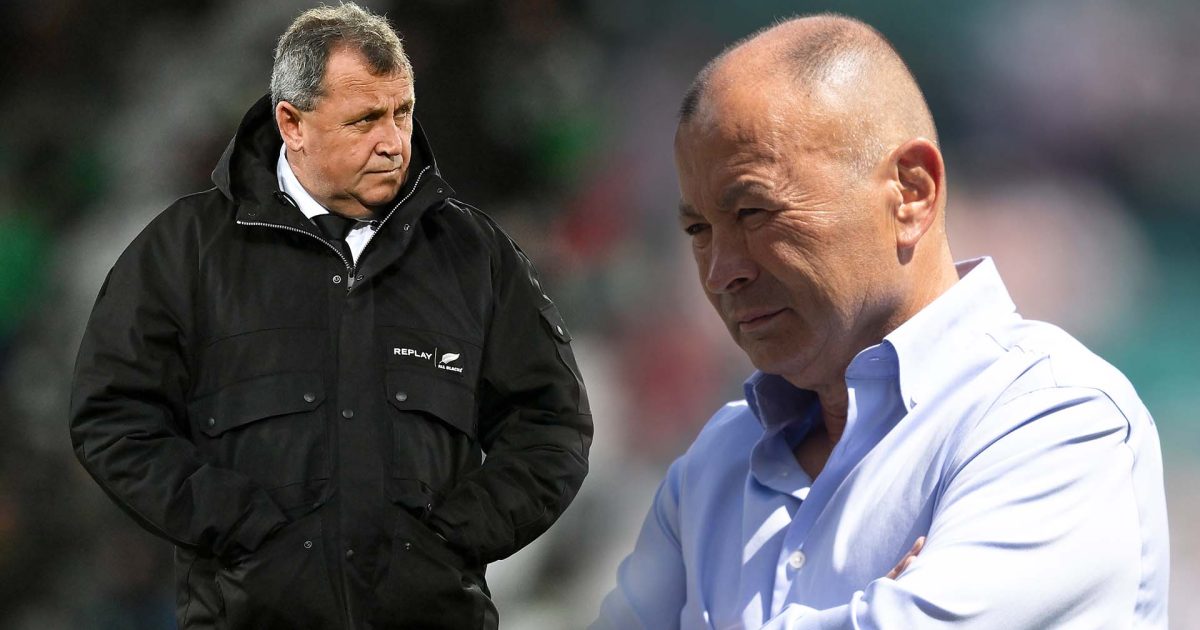The impact of rugby's global power shift on the All Blacks, England and the World Cup

Rugby looks to be undergoing a major power shift, judging by the release of the latest international rankings.
The World Rugby data was made public this week with little fanfare, but it appears to signal a big change for the international game.
Four northern hemisphere teams won the second matches of their three-test series against southern hemisphere opponents last weekend, taking those series to deciders which will be played across three continents on Saturday.
At the same time, France completed a sweep of their two-test series against Japan in Japan, using a relatively young squad with an eye to the World Cup they will host next year.
New rankings reflect those successes while hinting at a wider shift in rugby’s balance of power a little more than a year out from the World Cup.
Since the ranking system was introduced, southern hemisphere teams mostly have occupied the top spots: New Zealand held the No.1 spot for most of the first decade.
France have risen three places and now top the rankings list for the first time after winning 11 consecutive tests including the Japan series, a test against New Zealand last November and a Six Nations Grand Slam.
Ireland rose four places to No.2 ahead of World Cup champions South Africa, who moved from second to third. New Zealand are now fourth, the lowest ranking the All Blacks have occupied since the system was introduced prior to the 2003 World Cup.
England have moved back into the top five after their second test win over Australia, who dropped steeply into sixth place. Scotland and Wales also have improved their rankings after wins last weekend over Argentina and South Africa respectively.
News of New Zealand’s record-low ranking dropped on a team already under extreme pressure after their first loss at home to Ireland.
The 23-12 defeat in Dunedin has the All Blacks scrambling to avoid an unprecedented series loss at home, which would likely force New Zealand Rugby to review the performances of head coach Ian Foster and his assistants.
“If I’m honest we haven’t paid too much attention to that,” All Blacks captain Sam Cane said.
“We’ve got enough on our hands digesting what happened at the weekend and then focusing on the game to worry about things like world rankings.
“That takes care of itself when we’re playing well. I don’t even understand how the rankings work exactly but it’s certainly a goal of ours to make sure we get back to No.1.”
England beat the Wallabies to level that series and relieve some pressure on Australia-born head coach Eddie Jones, whose method, selections and personality have made him a regular target for the British media.
“I like it. I think it is fantastic,” he said.
“I love my mother ringing me up in the morning saying ‘Are you going to get sacked? When do you have to move? Are you going to come back to Australia?’
“My poor mother. But I don’t mind it because I have made the choice to take the job and that’s always going to happen because there’s infatuation with sacking coaches now, isn’t there?”
The question of why northern hemisphere teams now are out-performing southern rivals, at home during end-of-year tours and during current mid-year series, has many possible answers.
It seems likely the quality of domestic competitions in Britain and Europe now is higher than in the southern hemisphere, where Super Rugby has been diminished by the departure of clubs from South Africa.
Many leading coaches have moved north in the absence of opportunities at home and their influence is seen in the improvement of skills among northern players.
Southern hemisphere teams have won eight of the nine World Cup titles to date – England edged then defending champions Australia with an extra-time dropped goal in the 2003 final to break the southern sequence.
But as the 10th World Cup approaches, teams from the north appear to hold the upper hand.


























The South African move to NH provincial competitions was welcomed in many rugby quarters as much for the similarity in game styles between SA and the NH teams as it was for the much better return on TV viewership and the much easier travel. Consider this. Australia controls the airwaves when it comes to TV money compared to NZ. Australians prefer league to union. Australia had done as much to make rugby look like league as possible. Just a few years ago a Wallabies coach said the scrum was just to restart play and didn't form an important part of the game. NZ perfected the league type game, but the "old F@#ts in England weren't having any of it and rewrote the instruction for refs regarding the scrum to reward dominant front rows. Australia battled for years because they ran out of Argentinian front rowers now they are again becoming a force because they have a decent front three. NZ has a very iffish scrum. On the evidence of these two tests they will struggle against SA. The Bulls took this Irish (in the jersey of Leinster) pack apart in Dublin an few weeks ago with not a Springbok in the team. NZ need to go back to playing test match rugby instead of league style sixteen phases before they lose possession. The defences are far too good today for bash bash rugby.
The game up north is much more attritional and physical than the one played in the Southern Hemisphere. Add increased pressure at the breakdown and rush defense - and NZ Rugby are left grappling for answers. Unless NZ changes its predictable game plan and learn to win "dirty", not much will change...